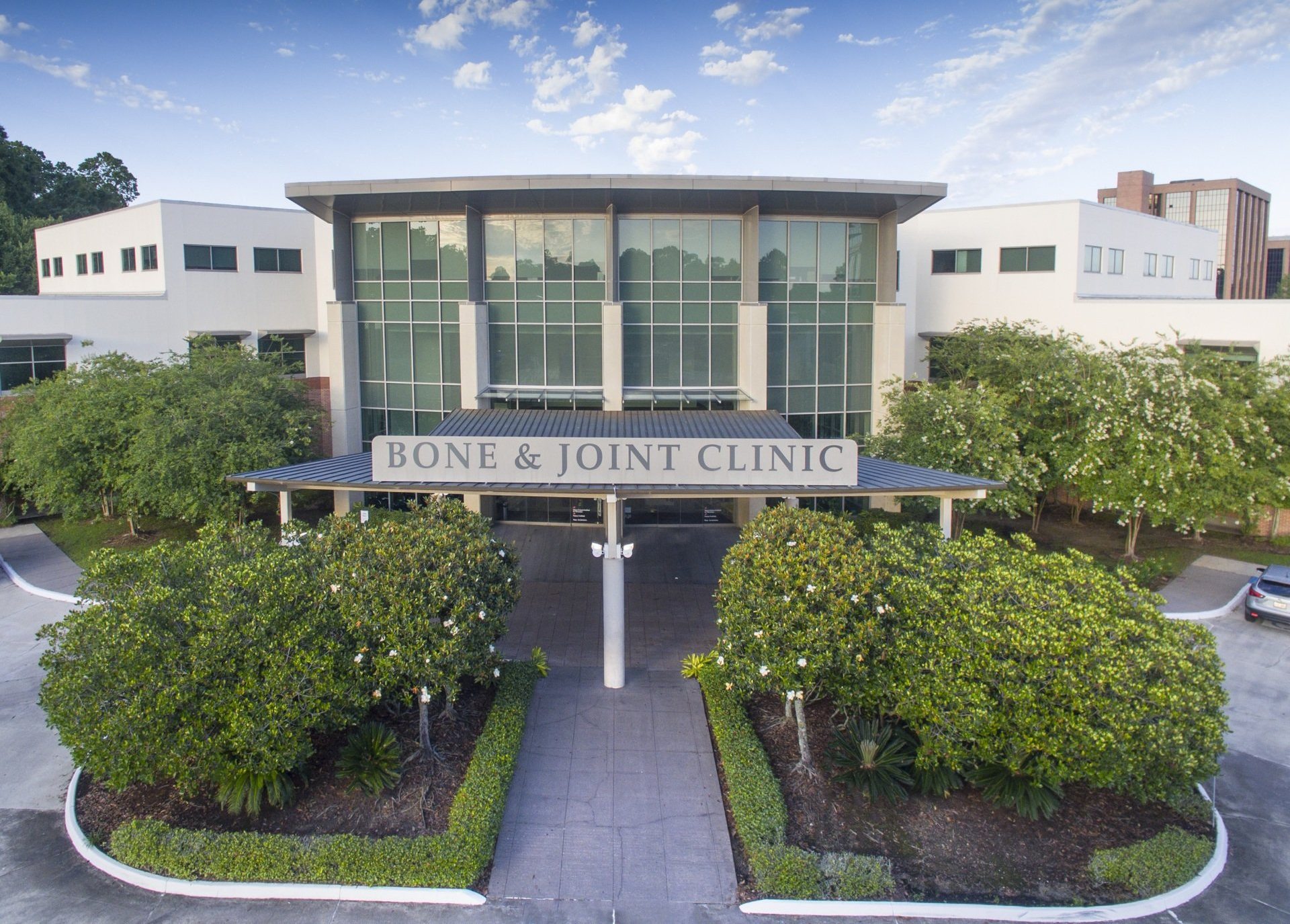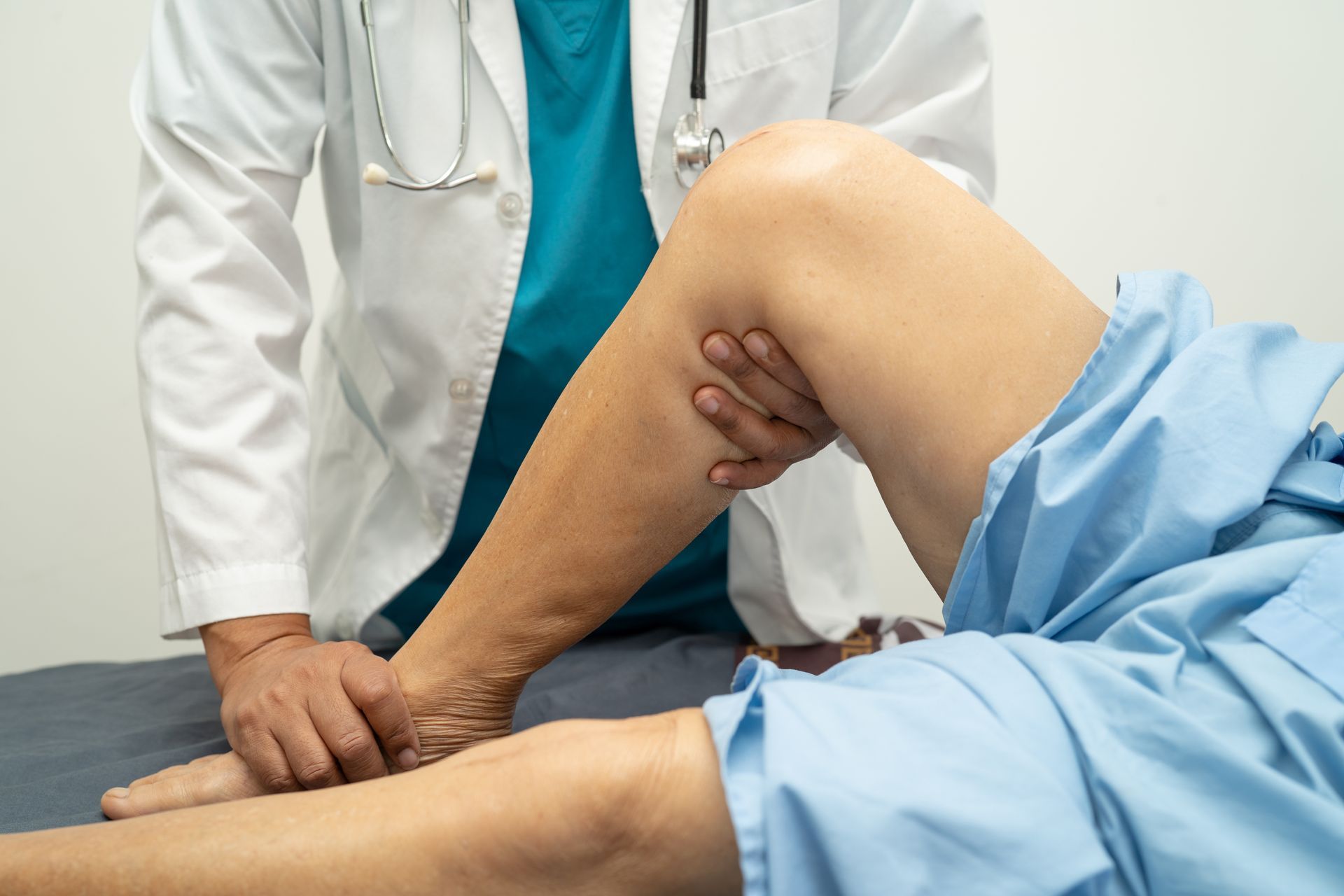Knee pain can make it difficult to walk, climb stairs, and do your favorite activities. Knee replacement surgery may be necessary to do the things that you need and want to do healthily and comfortably. It is important to identify the potential issues that could lead to the potential need for a knee replacement.
What is Knee Replacement Surgery?
Knee replacement surgery, or knee arthroplasty, involves removing damaged parts of the knee joint and replacing them with artificial components made of metal, ceramic, or plastic. This procedure is typically recommended when the knee joint is severely damaged, usually due to arthritis, trauma, or other degenerative conditions, and when other treatments have failed to provide relief.
What Common Conditions Lead to a Knee Replacement?
Over time, joint degeneration can be caused by disorders such as deformities, rheumatoid arthritis, and prior knee traumas. It may be necessary to have knee replacement surgery in order to restore function and relieve chronic knee pain when conservative measures such as physical therapy, medication, or injections are no longer effective in reducing pain and everyday tasks become difficult or unpleasant.
REQUEST AN APPOINTMENT WITH A SPECIALIST
Will a Knee Replacement Surgery Benefit Osteoarthritis in the Knee?
Osteoarthritis in the knee is a common degenerative joint ailment that happens when the cartilage cushioning the bones in the knee wears away. This condition causes discomfort, stiffness, and limited mobility in the affected knee. As the cartilage deteriorates, the bones will rub against each other, creating discomfort and inflammation. Osteoarthritis in the knee mainly affects older people, although it can also occur due to injury, obesity, or excessive strain on the joint.
What are the Benefits of a Knee Replacement for Rheumatoid Arthritis in the Knee?
Rheumatoid arthritis in the knee is the leading cause of pain and joint damage in the knee. Rheumatoid arthritis in the knee is an autoimmune condition where the immune system mistakenly attacks the joint's lining, causing inflammation, pain, and swelling. Unlike osteoarthritis, which results from wear and tear, rheumatoid arthritis can affect both knees simultaneously and leads to the destruction of cartilage and bone over time. This chronic inflammation may result in joint stiffness, reduced mobility, and deformity if left untreated. Early diagnosis and treatment, including medications, physical therapy, and lifestyle adjustments, are crucial in managing symptoms and preventing further joint damage.
Can a Knee Replacement Help with Post-Traumatic Arthritis in the Knee?
Post-traumatic arthritis in the knee occurs after an injury to the knee joint, like a fracture, ligament tear, or dislocation. This appears when the cartilage in the joint wears down over time, creating stress and leading to discomfort and stiffness. Symptoms can occur over a wide range of time after the injury.
What are Knee Deformities, and How Can a Knee Replacement Help?
Knee abnormalities, including knock knees (valgus deformity) or bowlegs (varus deformity), can put uneven pressure on the knee joint, which will accelerate joint deterioration and cause discomfort and limited mobility. These malformations can become worse with time, leading to more discomfort and functional difficulties. By re-establishing the correct alignment, reducing pain, and enhancing joint function, knee replacement surgery can be quite helpful in addressing these anomalies. For patients with severe knee issues, this procedure replaces the injured joint with prosthetic components, improving mobility and quality of life.
How Can Knee Replacement Surgery Help with Avascular Necrosis in the Knee?
Avascular necrosis (AVN) in the knee occurs when the blood supply to the bone tissue is disrupted, leading to the death of bone cells and the collapse of the joint surface. This condition can cause severe pain, limited mobility, and joint instability. As this disease progresses, the knee joint may become deformed and nonfunctional. Knee replacement surgery can be an effective solution for advanced AVN, as it replaces the damaged bone and cartilage with artificial components, relieving pain, restoring function, and improving mobility for individuals affected by this condition.
Knee Replacement Surgery at Bone and Joint Clinic of Baton Rouge
The expert staff of orthopedists at Bone and Joint Clinic of Baton Rouge are here to help with all of your knee and physical health needs. From surgery and treatment to physical therapy and rehabilitation, our doctors are here to get you back on your feet. Schedule an appointment today and get back to doing what you love.




